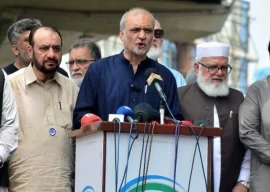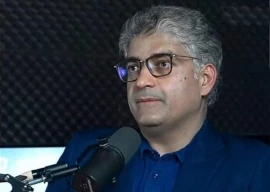The exchange rate has somehow come to be confused with our national honour. So, depreciation of the rupee against the dollar, no matter how little, is considered a big blow to our national honour. And, therefore, the need to keep it over-valued come what may. Of course, depreciation of the rupee against the dollar or the basket of currencies against which its rate is calculated ends up enhancing in the same measure the amount of debt in rupee terms. And since we are a dole-dependent country, the fear of increasing debt servicing in rupee terms in case of a fall in exchange rate has made our successive governments to take the easy way out by keeping it at an artificially high rate. This leads to a double negative — our exports become non-competitive and imports become cheaper as the over-valued rupee serves as an import subsidy to the extent to which it is over-valued, benefiting the foreign exporter.
Japan and China both had kept their currencies under-valued for decades to out-price the goods of the developed world in the international market. So much so that the developed world, especially the US, had a running feud with both these countries at different times on the issue of their under-valued currencies. The contest is still on between the US and China. India has also used its exchange rate to promote its exports and discourage even necessary imports, forcing foreign exporters to set up manufacturing facilities inside India rather than try to scale the high walls against imports erected by the under-valued Indian rupee.
At the moment, it is not our exports and neither the foreign remittances that have managed to prop up the current exchange rate of the rupee. The prop has come mostly from Saudi Arabia in the shape of an un-explained ‘gift’ of $1.5 billion, disbursement of over a billion dollar from the Extended Fund Facility of the IMF and one billion dollars’ worth of Eurobonds issued last year. What is happening here is unpardonable. External loans are propping up an over-valued rupee that discourages exports and helps add to our import bill, expanding the trade gap to finance what we borrow further.
The lynchpin of our exports — textiles — do not seem to have responded positively to the grant of the GSP Plus facility by our European friends because of continued and massive load-shedding affecting our manufacturing sector adversely and also because of the over-valued rupee. According to the Asian Development Bank (ADB), Pakistan’s real effective exchange rate — the weighted average of Pakistan’s currency relative to a basket of other major currencies adjusted for the effects for inflation — appreciated 7.7 per cent till January this year, neutralising the benefits of GSP Plus access to European markets.
Lower exports would certainly impact adversely on overall economic growth. That is perhaps why independent economic experts have started predicting that during this fiscal year as well, Pakistan would not be able to achieve its annual growth target of 5.1 per cent. An ADB estimate has put the current year’s growth rate at around 4.2 per cent. The large-scale manufacturing sector is said to be experiencing sluggish growth, reflecting the continued power shortages, the continued foot-dragging by investors and weak external demand for Pakistan’s exports.
The fall in world oil prices provides the government with the space to introduce much-needed structural reforms, protecting at the same time the most vulnerable from the associated side-effects. Let the super-rich and the rich share the cost of dislocations resulting from the reforms. Broaden the tax base, enforce tax compliance and enhance the independence of the central bank in accordance with international best practices. Also, it is time to move decisively against terror-related financing and to legislate an anti-money laundering bill complying with the standards set by the UN.
Published in The Express Tribune, April 1st, 2015.
Like Opinion & Editorial on Facebook, follow @ETOpEd on Twitter to receive all updates on all our daily pieces.










1722244248-0/tlprrt-(1)1722244248-0-270x192.webp)

COMMENTS (3)
Comments are moderated and generally will be posted if they are on-topic and not abusive.
For more information, please see our Comments FAQ